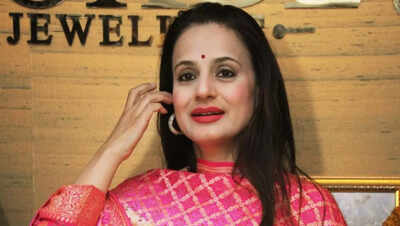
Actress Ameesha Patel recently shared her perspectives on several pertinent issues currently being discussed within the
Bollywood
film industry. In an interview with India Today, the Gadar 2 star offered her views on the contentious topic of pay disparity between male and female actors, the prevalent issue of ageism, and the escalating budgets of film productions.Pay Disparity: Justified but the Gap Needs to NarrowAddressing the long-standing debate surrounding the pay gap in Bollywood, Ameesha Patel acknowledged the existing disparity but emphasized the crucial need for it to be significantly reduced.
She stated, "It should decrease for sure, but it's also justified because heroes do bring in the lion's share of the box office. But yeah, they should not have such a wide gap." Patel's statement reflects a nuanced understanding of the commercial realities of the film industry, where male lead actors often command higher fees due to their perceived box office draw. However, she firmly advocates for a more equitable compensation structure, suggesting that the current chasm between male and female earnings is excessive and requires rectification.Ameesha Patel also voiced a strong and unequivocal opinion against ageism, labeling it a "complete no, no." She elaborated on her stance by pointing out the current industry dynamics, stating, "It's wrong because we're seeing it today. It's very easy to call our superstars old or whatever, but they're the ones getting the box office clicking and getting all the big numbers, so I think it's wrong." Patel's comments highlight the apparent contradiction of criticizing established, older actors while simultaneously acknowledging their significant contribution to the industry's commercial success. She suggests that judging actors based on their age, especially when they continue to deliver successful films, is unwarranted and unfair.
Ameesha Patel Makes a Stylish Appearance at the Airport
Patel further weighed in on the escalating budgets of film productions and stressed the importance of actors being willing to revisit their fee structures in the current economic climate. She explained, "Actors slashing their fees is required at the moment because films are getting very expensive to make. Sometimes when an actor's fee is too high, the producer has to compromise on the actual making of the film, and then the production value does not look as good as the film demands it to, and the audience doesn't end up liking the film." Her perspective underscores the delicate balance between actor compensation and the overall quality of the cinematic product.Patel further elaborated on the potential benefits of actors adopting a more reasonable approach to their fees. She suggested that this could lead to an improvement in the overall quality of cinema, stating, "If an actor takes a reasonable remuneration, they can focus on better cinema for sure, and the pressure of getting the film to succeed is a lot less because your budget is under control. So definitely." By advocating for a more collaborative financial approach, Patel implies that prioritizing the film's production value over exorbitant individual fees could ultimately lead to better storytelling and a more positive audience reception. Ameesha Patel's forthright opinions come at a crucial juncture for the Bollywood industry, as it grapples with evolving audience preferences, increasing production costs, and heightened scrutiny regarding issues of pay equity and age dynamics within its workforce.

 5 hours ago
47
5 hours ago
47




























 English (US)
English (US)